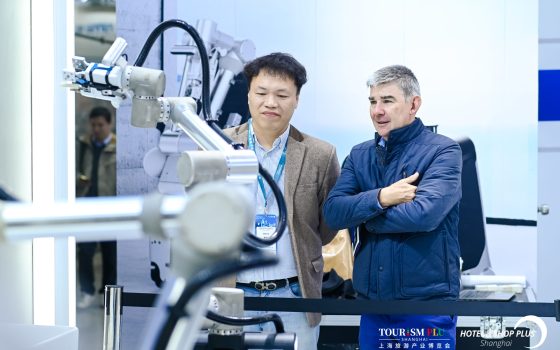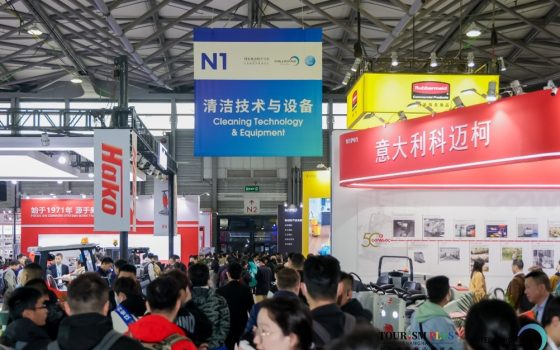Are You Prepared for Tomorrow’s Disruptive Technologies?
Sushi-making robots churning out 3,600 pieces in an hour.
Facial recognition systems identifying customers the moment they enter a hotel lobby. Wearable devices alerting restaurant servers and hotel staff that guests need prompt service.
These innovations aren’t in the realm of science fiction anymore. They exist today and hospitality leaders, including F&B operators and hoteliers, already are capitalizing on some of them to distinguish their brands and gap the competition.
Anticipating consumer trends and seeking innovations that enhance the guest experience are vital exercises that need to be practiced diligently. Now, more than ever, taking these steps helps ensure success tomorrow.
Illustration of a robotAre you ready?
At Oracle Industry Connect, held March 20-22 in Orlando, Fla., Oracle Hospitality leadership and the industry’s top practitioners discussed the urgency of embracing technology to innovate. At the annual, cross-industry summit – designed to promote peer-to-peer sharing of best practices – key themes focused on identifying “game-changing” technologies and the preparation needed to deploy them effectively.
Oracle Hospitality also previewed its latest industry research reports, Hotel 2025 and Restaurant 2025, which examined top technologies destined to reshape our business during the next eight years. (The just-released reports can be downloaded here: Restaurant 2025 Report | Hotel 2025 Report.
At OIC, discussions revolved around innovations that help create personalized, individualized experiences, automate processes, and deliver predictive capabilities for optimal forecasting. And nearly everyone emphasized the importance of making the time to take advantage of disruptive technologies – or risk being disrupted by them.
“You don’t have the luxury of saying, ‘I’m only going to focus on today,’ ” said Mike Webster, senior vice president and general manager of Oracle Hospitality. “The pace of change you’re living with is going to continue unabated…. The range of guest expectations is not getting easier. It’s getting harder because we as consumers are now conditioned to having information at our fingertips – in any format, when we want it.”
Webster, however, cautioned against the indiscriminate adoption of individual, discrete technologies. Instead, he urged the embrace of platforms that offer interoperable solutions and that “take some of the integration pain and cost out of your business.”
The ability to strategically deploy new technologies rests squarely upon corporate leadership’s commitment to innovation.
Several OIC speakers highlighted the growing role of the IT steering committee within their organizations and its emergence as an innovation driver. In fact, at a time when many companies acknowledge drowning in meetings, Dunkin’ Donuts streamlined its schedule, converting some monthly meetings into quarterly ones. But one meeting that maintained its frequency? The IT steering committee’s, which underscored the company’s commitment to it, according to Jack Clare, chief information officer and strategy officer for Dunkin’ Brands Group.
Fostering an organizational culture that places a premium on innovation also ensures recruiting and engaging essential employees who will have the necessary skills to compete.
“If you think we have a war for talent going on today, we think there is a (talent) famine ahead,” said Oracle’s Webster. “There will be haves and have-nots as we go forward in our ability not just to manage talent, but to access the talent to mobilize the capabilities we’ve talked about.
“We need to start thinking about what are the skills required to compete tomorrow,” he added. “We think it will become most acute in the area of science and analytics. There is such an incredible demand in every industry for these skills.”
The consequence for being unprepared could be severe. Said Olivier Chavy, CEO of Movenpick Hotels and Resorts: “Those who are not ready will be in the cemetery of brands.”
But by building the right team and adopting best-in-class platforms, a hospitality enterprise can augment its capabilities to meet every guest expectation. After all, the goal is convert experiences into connections.
“We believe experiences are becoming commodities,” Webster said. “How do you build a deeper, richer connection so that I become not a loyal guest, but a brand ambassador?”
">




















